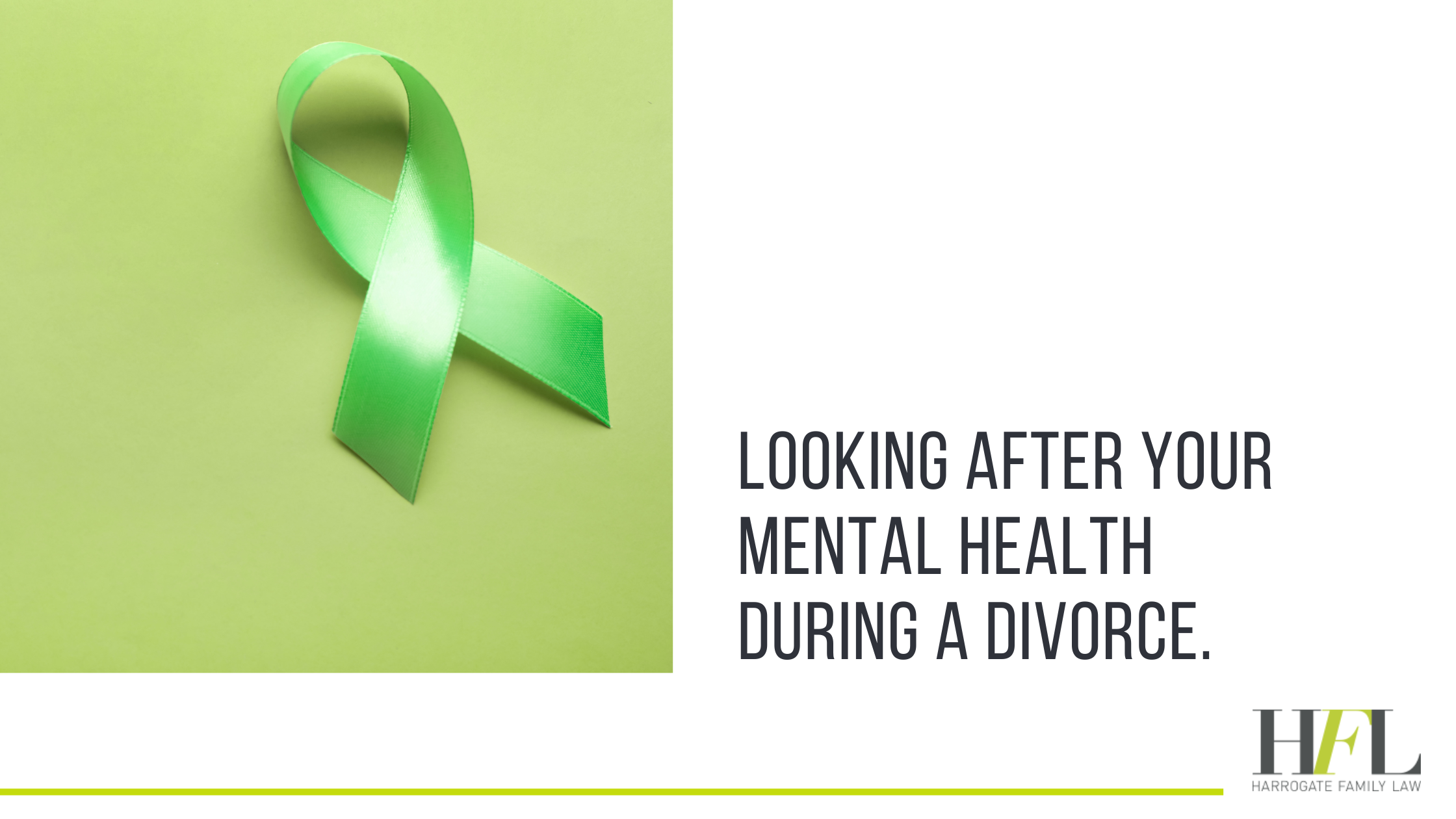Everyone experiences divorce differently. For some couples, it’s a decision rooted in clarity and positivity, signalling a brand new start for everyone involved. For others, the situation is acrimonious and full of tension, with both parties seeking answers and a place to lay the blame. No matter the circumstances of your divorce or separation, it’s perfectly natural for you to experience a range of emotions. Relief, sadness, anxiety and regret to name just a few.
Here at Harrogate Family Law, we’re aware of the toll that divorce can take on those going through it. As well as providing expert legal advice, we do everything we can to support our clients in looking to a more positive future.
That’s why this Mental Health Awareness Week, we’re providing some of our top tips for how you can look after your mental health and wellbeing during a divorce or separation, and how to seek help if you need it.
How does divorce impact your mental health?
There’s a general consensus that a divorce or relationship breakdown is a major cause of stress which affects both the body and the mind. If not dealt with effectively, stress can cause physical and mental health problems, and leave you feeling alone, frightened and without hope.
For some people, going through a divorce can lead to a kind of unravelling in other areas of their life. They might worry about how they’ll cope financially, be unable to focus properly on their job, and carry the extra burden of supporting any children they may have through the process.
All in all, divorce isn’t easy, and it’s absolutely vital that you do whatever you can to look after yourself at every step.
Sleep
There’s no doubt that divorce can cause many a sleepless night. However, sleep is critical for your mental and physical wellbeing, and a lack of it can lead to or worsen depression. Without it, everything feels harder, including regulating your emotions, and it can be difficult to find the clarity you need when your mind is tired and foggy.
There’s no one magic solution to solve any sleep problems that you may be experiencing, but you could try:
- Having a sleep schedule. Try to stay consistent when it comes to going to bed and waking up. Creating a routine will give you the best chance of getting the amount of sleep you need.
- Put your phone away. The constant stream of light and noise we’re all so accustomed to in this increasingly digital world can be hard enough to deal with. Make sure your screens are away at least an hour before you settle down to sleep in order to minimise blue light exposure.
- Create a calm and peaceful sleeping environment. Low lights, soothing scents, and a comfortable bed. These are all things that can help you to relax and destress as you head to bed.
Diet and exercise
During a break-up, it’s all too tempting to wallow in pots of ice cream and bars of chocolate. Whilst it’s okay to enjoy this every now and again, it shouldn’t be the norm. Simple changes to your diet can make a big difference to your mood. Incorporating mood-boosting ingredients such as yoghurt and berries, oily fish and eggs into your daily diet will help you to feel a little better and more energetic.
Exercise is also a great way to boost your mood, helping you to feel calmer and more alert. Even if it’s just a gentle stroll outdoors, the likelihood is that you’ll feel better for it.
Seek support
As you go through your divorce, it may be that you experience periods of loneliness. Even if you’re surrounded by friends and loved ones, grieving for your marriage or relationship can leave you with a sense of loss.
Lean on your family and friends for support when you need to. If you’re struggling with your feelings, always seek advice from your GP. It may be that you’d benefit from talking to a therapist or counsellor. You may even want to explore working with a divorce coach who can help you manage along the way.
It also goes without saying that having a supportive legal team will help you to feel more secure and confident about the future. This might particularly be the case if you’re separating from an abusive and/or narcissistic spouse or partner. You can read one client’s account of how Harrogate Family Law helped her cope with her difficult divorce here.
Whatever your situation, remember that you’re not alone. If you’re concerned about your own or someone else’s mental health and wellbeing, it’s always a good idea to talk to someone – you’ll find a list of organisations that can help below.
And if you’d like to talk to someone about how we can help with your divorce or separation, all you need to do is get in touch.
Where to seek support:
- Mindwell – https://www.mindwell-leeds.org.uk/
- Leeds Mind – https://www.leedsmind.org.uk/
- North Yorkshire Council – https://shorturl.at/fwzEJ
Samaritans – https://www.samaritans.org/how-we-can-help/






